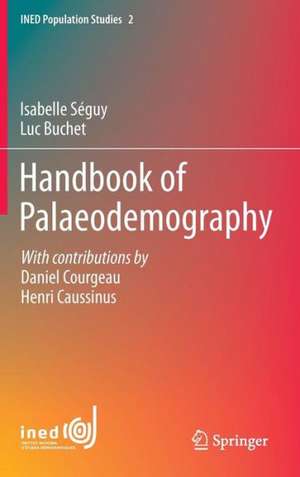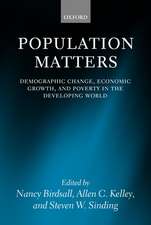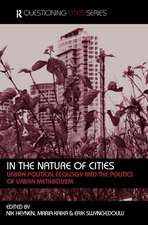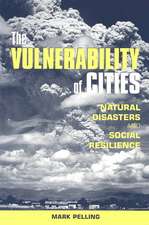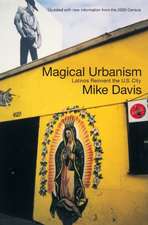Handbook of Palaeodemography: INED Population Studies, cartea 2
Autor Isabelle Séguy, Luc Buchet Contribuţii de Daniel Courgeau, Henri Caussinusen Limba Engleză Hardback – 30 ian 2014
Starting from the known in order to explore the unknown, this book presents a historical view of methods used in the past and present as well as proposes original ones. The paleodemographic methods presented in this handbook have been tested on anthropological and archaeological data and can easily be applied.
This manual represents a fruitful collaboration between historical demographers and anthropological archaeologists who, with the help of mathematicians and statisticians, detail research that opens an important historical dimension to the discipline. Written in a readily understandable manner, it serves as an ideal resource for those wishing to interpret ancient bones in demographic terms.
| Toate formatele și edițiile | Preț | Express |
|---|---|---|
| Paperback (1) | 565.32 lei 39-44 zile | |
| Springer International Publishing – 27 aug 2016 | 565.32 lei 39-44 zile | |
| Hardback (1) | 651.19 lei 6-8 săpt. | |
| Springer International Publishing – 30 ian 2014 | 651.19 lei 6-8 săpt. |
Preț: 651.19 lei
Preț vechi: 766.10 lei
-15% Nou
Puncte Express: 977
Preț estimativ în valută:
124.60€ • 129.84$ • 103.17£
124.60€ • 129.84$ • 103.17£
Carte tipărită la comandă
Livrare economică 03-17 aprilie
Preluare comenzi: 021 569.72.76
Specificații
ISBN-13: 9783319015521
ISBN-10: 3319015524
Pagini: 329
Ilustrații: XXII, 329 p. 78 illus.
Dimensiuni: 155 x 235 x 25 mm
Greutate: 0.72 kg
Ediția:2013
Editura: Springer International Publishing
Colecția Springer
Seria INED Population Studies
Locul publicării:Cham, Switzerland
ISBN-10: 3319015524
Pagini: 329
Ilustrații: XXII, 329 p. 78 illus.
Dimensiuni: 155 x 235 x 25 mm
Greutate: 0.72 kg
Ediția:2013
Editura: Springer International Publishing
Colecția Springer
Seria INED Population Studies
Locul publicării:Cham, Switzerland
Public țintă
ResearchCuprins
Acknowledgements.- Preface: François Héran.- Foreword.- Introduction.- Part 1: The Data of Interest: Chapter I: Epistemology of the Discipline.- Chapter II: The Osteological data.- Chapter III: Establishing a Reference Population.- Part 2: Reconstructuring Demographic Parameters: Chapter IV: Age at Death: Current Approaches and Methods.- Chapter V: Current Demographic Models.- Chapter VI: Finding the Right Models for Pre-industrial Populations.- Chapter VII: Model Tables for Pre-industrial Populations.- Chapter VIII: Definition and Explorations of a Pre-industrial Standard.- Chapter IX: Final Overview.- Chapter X: Examples of Archaeological Applications.- Part Four: Further Analysis.- Chapter XI: Critique of Current Methods bu Daniel Courgeau.- Chapter XII: A New Method for Estimating Age-at-Death Structure by Henri Caussinus and Daniel Courgeau.
Textul de pe ultima copertă
This book examines methods for linking osteo-archaeological data with historical and environmental sources to shed light on the living conditions of past populations. Covering all time periods from prehistory to the 20th century, it aims to construct models that capture plausible demographic dynamics from highly fragmentary evidence.
Starting from the known in order to explore the unknown, this book presents a historical view of methods used in the past and present as well as proposes original ones. The paleodemographic methods presented in this handbook have been tested on anthropological and archaeological data and can easily be applied.
This manual represents a fruitful collaboration between historical demographers and anthropological archaeologists who, with the help of mathematicians and statisticians, detail research that opens an important historical dimension to the discipline. Written in a readily understandable manner, it serves as an ideal resource for those wishing to interpret ancient bones in demographic terms.
Starting from the known in order to explore the unknown, this book presents a historical view of methods used in the past and present as well as proposes original ones. The paleodemographic methods presented in this handbook have been tested on anthropological and archaeological data and can easily be applied.
This manual represents a fruitful collaboration between historical demographers and anthropological archaeologists who, with the help of mathematicians and statisticians, detail research that opens an important historical dimension to the discipline. Written in a readily understandable manner, it serves as an ideal resource for those wishing to interpret ancient bones in demographic terms.
Caracteristici
With the contributions of Henri Caussinus, Université de Toulouse, and Daniel Courgeau, INED, France Offers new research perspectives in paleodemography Provides means to retrace the living conditions of past populations Practical manual for anthropologists and archaeologists for interpreting ancient bones in demographic terms ? Includes supplementary material: sn.pub/extras
